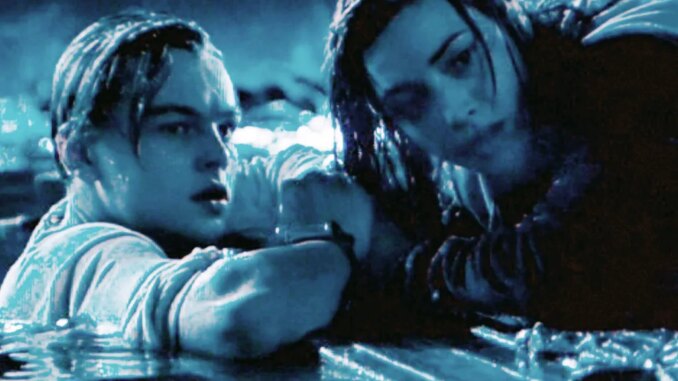
Beyond Romance: The Real Reason Behind Jack's Sacrifice in Titanic
James Cameron's "Titanic" has etched itself into the cultural consciousness, not just as a cinematic spectacle, but as a tragic love story for the ages. Jack Dawson, the penniless artist, captures the heart of Rose DeWitt Bukater, a socialite stifled by her gilded cage. Their romance, burgeoning amidst the opulence and impending doom of the "unsinkable" ship, culminates in a heartbreaking final scene: Jack, frozen in the icy Atlantic, surrendering his life for Rose. While the narrative frames this as the ultimate act of love, a deeper analysis reveals that Jack's sacrifice transcended mere romantic devotion. It was born from a potent mix of selflessness, understanding of his own mortality, and a profound desire to ignite Rose's spirit – a desire that ultimately saved her life, not just from the freezing water, but from a life devoid of genuine purpose.
The immediate interpretation of Jack's sacrifice centers on his love for Rose. He had, after all, promised her he would "never let go." In the face of impending death, this promise took on a literal and tragically binding form. He understood that only one of them could survive on the floating door, and his devotion to Rose, a woman who had shown him a glimpse of a life beyond his wildest dreams, propelled him to relinquish his own chance at survival. He held her hand, talked her through her panic, and provided the vital human connection she needed to endure the agonizing wait for rescue. This love, however, was not simply a romantic infatuation. It was a deep, abiding respect and a recognition of Rose's potential – a potential he believed was worth more than his own life.
Beyond romantic love, Jack's act stemmed from a stoic acceptance of his own fate. He was a drifter, a wanderer accustomed to living on the fringes of society. He understood the precariousness of life and the inherent inequalities that dictated survival. He knew that as a third-class passenger, his chances of being rescued were slim, even on the door. This awareness, coupled with his inherent lack of materialism and attachment to earthly possessions, likely contributed to his willingness to relinquish his own grip on life. He wasn't leaving behind a fortune, a title, or a family legacy. He was leaving behind a life lived fully, albeit briefly, and a woman whose future he desperately wanted to secure.
More importantly, Jack’s sacrifice was a deliberate act of liberation for Rose. He recognized the suffocating constraints placed upon her by her social standing and the manipulative nature of her fiancé, Cal Hockley. He understood that without him, she might revert back to a life of quiet desperation, marrying Cal and conforming to the expectations of her class. Therefore, his final moments were not just about keeping her warm, but about imbuing her with the strength and courage to break free. He told her she would live, she would have children, and she would die an old woman in a warm bed. He painted a picture of a life filled with joy and adventure, free from the shackles of her past. This wasn't just a comforting promise; it was a call to action, a directive to live life to the fullest, to honor the gift he was giving her.
And Rose did. The film shows her embracing a life of independence and exploration, traveling the world and engaging in activities that would have been unthinkable within the confines of her former life. She honored Jack's memory not by clinging to the past, but by living a life that celebrated the freedom and joy he had inspired in her. She found happiness, raised a family, and lived a long and fulfilling life, precisely as he had envisioned.
In conclusion, while the romantic narrative of "Titanic" positions Jack's sacrifice as an act of pure, unadulterated love, the reality is far more nuanced. It was a complex interplay of selflessness, a pragmatic understanding of his own mortality, and a profound desire to ignite Rose's spirit and set her free. He gave her not just the space on the door, but the courage to forge her own path, to defy expectations, and to truly live. Jack's sacrifice was not just about saving Rose's life in the immediate aftermath of the disaster; it was about giving her the gift of a future – a future worth living, a future filled with purpose and joy, a future that ensured his memory would live on, not as a tragic footnote in her life, but as the catalyst for her ultimate liberation and happiness. It was, in the truest sense, the ultimate act of love, but a love that transcended romance and embraced the enduring power of human connection and the unwavering belief in the potential of another human being.